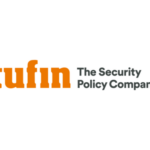Published December 6th, 2023 by Avigdor Book
In a rapidly evolving cloud environment, understanding cloud security controls becomes crucial. Cloud security controls range from protecting sensitive data to maintaining security measures. In this blog, we will discuss the role of audits, authentication, access control and examine potential vulnerabilities, highlighting the responsibilities of your cloud service provider and the importance of data protection.
The Importance of Cloud Security Measures
In light of the escalating frequency of data breaches and unauthorized access incidents worldwide, it has become imperative for businesses to embrace robust security protocols within cloud environments. A critical emphasis should be placed on the integration of ongoing audits as a proactive measure to minimize vulnerabilities. Safeguarding sensitive data and preemptively addressing potential threats are paramount to averting any adverse consequences.
Cloud Security Controls and Their Role
Cloud security controls are specifically designed tools that help in maintaining the security of cloud infrastructure. These tools are instrumental in preventing data breaches, managing permissions, and ensuring data protection. A key aspect of these controls is the implementation of access control and authentication measures. It is crucial to manage who has access to your cloud data and ensure that any unauthorized access is immediately flagged and addressed. One of the most comprehensive solutions for managing these controls is the Tufin Orchestration Suite. This suite provides a range of security measures and controls that can be customized to suit your specific cloud environment.
Challenges in Cloud Security and Tufin’s Solutions
Some of the cloud security challenges which businesses face, include managing security policies, dealing with misconfigurations, and ensuring a robust security posture.
Our cloud security configuration management guide provides a detailed overview of these challenges and the ways to tackle them.
Moreover, multi-cloud security solutions and hybrid cloud security have emerged as effective ways to manage these challenges. Implementing cloud security automation can further enhance the security of your cloud environment.
Cloud Security: Moving Forward
Businesses are realizing that it is critical to be aware of the most recent cloud security advancements. This requires a deep understanding of the shared responsibility model, the significance of firewalls, and the critical role of real-time threat intelligence.
The landscape of cloud security is ever-changing, characterized by the continuous evolution of threats and vulnerabilities. It is of utmost importance to guarantee that your security protocols are not only current but also capable of adeptly addressing these dynamic and evolving threats.
FAQs
Q: What are some effective cloud security controls for a secure cloud environment?
A: Cloud security controls include access control, user authentication, and protection of sensitive data. They also mitigate security risks such as data breaches, unauthorized access, and cyberattacks. Implementations of these controls widely vary, as they depend on factors like the kind of cloud service (SaaS, IaaS, PaaS), the cloud service provider, and whether the cloud is public, private, or hybrid.
For a comprehensive understanding of cloud security controls, you might find our cloud security configuration management guide helpful.
Q: How do cloud security controls help mitigate vulnerabilities in cloud computing?
A: Cloud security controls help identify potential vulnerabilities in the cloud environment and take necessary security measures to address them. These measures include conducting regular audits, ensuring proper data protection, and implementing robust security policies. Effective cloud security controls also help maintain a proactive security posture by detecting misconfigurations, preventing unauthorized access, and using security tools for real-time threat intelligence.
Learn more about this topic by checking out our blog post on cloud security compliance.
Q: Why are cloud security controls crucial in maintaining security in a cloud infrastructure?
A: Cloud security controls are essential in ensuring the security of data centers, protecting sensitive information, managing permissions, and safeguarding against malware attacks in the cloud infrastructure. They also play a crucial role in the shared responsibility model, where cloud service providers and users share security responsibilities. They help maintain a secure cloud workload and enable the implementation of multi-factor authentication, identity and access management (IAM), and other security solutions.
For a more in-depth discussion on the challenges in maintaining cloud security, visit our blog post on five major cloud security challenges for enterprises.
Wrapping Up
To explore how Tufin can help enhance your cloud security, sign up for a demo. With a comprehensive suite of cloud security solutions and a proactive approach to managing cloud security risks, Tufin can be the trusted partner in your cloud security journey.

Don't miss out on more Tufin blogs
Subscribe to our weekly blog digest









